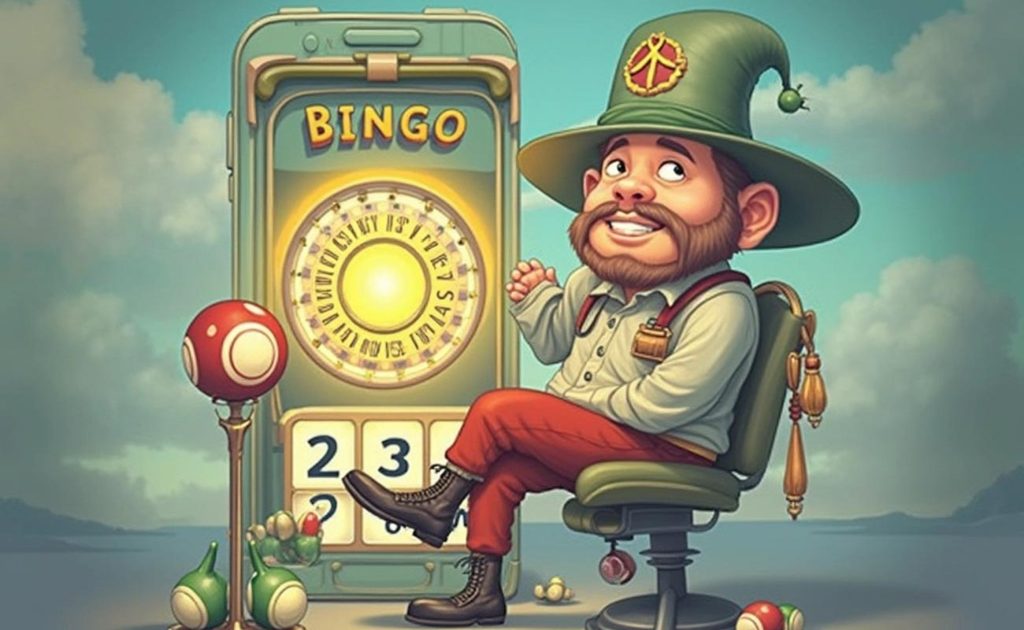Bingo has been a favourite game for many years, and recently, the boom of bingo white labels in the UK was quite obvious. These are sites where companies can bask in their own bingo games instead of building one from scratch. For many it seemed an opportunity. But in the last years, a large number of bingo white labels have closed down, leading many to ask what went wrong? In this article, we look at what factors have led to the closure of so many of the UK bingo white labels.
What is a Bingo White Label?
Bingo white label is a pre-built bingo service. This lets companies operate their own bingo site without having to implement all the technical components on their own. With this, they can brand the site, provide games, and take care of customers without any of the backend, which has been provided by a third party. “The business no longer has to concern itself with creating games or building complicated systems. They instead can target their brand awareness and traffic to the site.
Initially many viewed this as an easy entry into the bingo market. But over the years, a lot of these white labels have closed up shop. So, what went wrong?
Increased Competition
Over the years, the bingo market in the UK individual used to grow at a breakneck pace. There was an opportunity, and a lot of businesses came in.” There was fierce competition as a result. In early days, owning a bingo generate was a tempting prospect for numerous firms. With so many sites popping up, though, it became increasingly difficult to stand out.
Due to the increasing bingo white labels, it was getting challenging for each to pull players. Competition for customers grew fierce. Many white labels scrambled to get noticed when bigger-brand names with existing followings were already on the scene. With neither strong marketing nor distinctive offerings, many of the new sites couldn’t compete, and they shuttered.
The Cost of Marketing
A significant factor in the closure of a number of bingo white labels is the marketing cost. With so much competition, they need to spend a lot of money on advertising to get attract customers. That means investing in SEO (search engine optimisation) and paid ads, social media campaigns, and so forth.
This price can prove difficult for smaller companies operating a bingo white label to handle. They sometimes don’t have the same budget like bigger brands which makes it hard for them to get their message across. Without adequate marketing, it’s difficult to attract new players to the game or get them to return to it. This means less sales, and for many, having to shut down business completely.
Changing Regulations
The UK has a very regulated gambling market. And although that is essential to make sure they work fairly and safely, it can be hard for businesses. In the subsequent years, restrictions for online gambling emerged over the years. These rules include player protection, responsible gambling, and fair play. But these regulations are painful for businesses to follow.
This makes it quite a task for the bingo white labels to keep up with them and ensure compliance. Others may not have had the resources or infrastructure to adapt accordingly. Non-compliance with regulations may result in penalties or even website shut down.
Changes to your tax laws and any new legislation regarding licensing can also add to your operating costs. This only makes it more difficult for a business running a bingo website to stay profitable given these overheads. If overheads become too much, a lot of businesses choose to close up shop.
Lack of Innovation
Real money gambling is like any other form of gambling; it never sits still. Over time, certain bingo white labels neglected to refresh their sites with fresh games and other features. The brand stuck with clunky designs and straight-forward gameplay which grew stale as bingo sites evolved and adopted the fun features we see today.
This new generation of players expect more than a simple game of bingo. They want options, interactive games, and beautiful graphics. Sites that didn’t modernize lost customers to sites that delivered more innovative opportunities. The online bingo industry is so competitive that failure to innovate can see player numbers nosediving, ultimately resulting in the site shutting down altogether.
Low Player Retention
In addition to acquiring players for a bingo site, retention is equally if not more important. There were bingo white labels that had difficulty keeping players. They had marketed well enough to bring people to their site but hadn’t given them a reason to return. Bingo websites would struggle to make enough money to survive without loyal players.
Most of the time, retention issues can fall in the category that the web does not present enough rewards or promotions to encourage the players to keep playing. Regular players are an important factor to keep a steady income for remapping a bingo site. When a site doesn’t make players feel valued or excited to come back, they will be off in search of a new site that does.
Failed Monetisation Methods
Bingo websites can be a bit tricky when it comes to monetisation. The vast majority of sites generate revenue by having players buy bingo cards and participate in games. But if the site doesn’t get enough players, or if players aren’t buying enough cards, the business will falter.
Certain bingo white labels attempted to profit from affiliate marketing or advertising. But such a strategy does not necessarily pay off in the bingo industry. So why do websites exist, as the revenue earned from such sources is not even sufficient to pay the bills for the operation of the site? Bingo is one of the many industries to see an influx of new companies, and like all the rest, saw loads of different bingo white labels springing up over the decade, only to fizzle out within a few years due to lack of funds or players.
Poor Customer Support
Well, customer support is the pillar for the success of any online business. Players will be frustrated and leave the website if a bingo site does not provide their customer service in a timely as well as helpful and friendly manner. Gamers tend to want immediate answers to their questions, especially and including concerns about payment issues or issues with games.
All the bingo white labels invested to a sufficient extent in customer support. Lack of care for players’ needs caused criticism and bad reviews. When a website’s reputation suffers, the repair can be painful. Word of mouth turned negative, and players began to shy away from the site. This ultimately resulted in a decline in player numbers and a loss of revenue, which led to the closure of the site.
Reliance on External Service Providers
Bingo white labels often outsource their games, payment systems, and other services to third-party providers. This is convenient — but also problematic. If the third-party provider suffers from something like software bugs or security breaches, so will the bingo site.
Furthermore, there is a chance that some of the third party providers will increase their price which could lead to an increase in the operational costs for the bingo white label. If the cost rises while the income stays constant, the business may fail to be profitable. Reliance upon third-party providers can expose a bingo site to external problems, which can lead to shutdowns.
A Saturated Market
As previously noted, the UK bingo sector turned into saturated. This led to an influx of bingo white labels flooding the market with no blueprint in place to differentiate themselves. They didn’t have enough unique features or target a distinct audience. As the time went by, similar websites started pouring into the market and competing for the same players.
And in a saturated market, the road to attract and retain customers is harder than ever. It was hard for new bingo websites to establish their name, and many eventually folded because there was no way to stand out amongst the crowd and gain market share.
Lack of Trust and Reputation
The gambling industry relies on trust. Players must be confident that it is a fair, safe and trustworthy website. Most of the bingo white labels lacked customers’ trust. What If a web site did not put proper security measures in position, or even players had concerns notion of fairness of the games they are playing, they would promptly walk away.
This meant that low-reputation bingo sites risked losing their players. It became increasingly difficult for websites that were negatively reviewed to get back up as online reviews rose in importance. A bingo white label wouldn’t be able to survive long without trust and a good reputation.
Conclusion
The reasons that many of the bingo white labels in the UK have gone out of business are many and varied. Awash with challenges including heightened competition and expensive marketing, shifting regulations, and inadequate customer service, these businesses had a lot to deal with. So, though bingo white labels are a simple and fast way to break into the industry, from that point forward there are considered factors, e. g. a comprehensive strategy, ingenuity and a good sound business model.
With so much competition in the UK bingo space, companies need to be on top of trends, provide high quality customer support, and invest in marketing. This tells you all you need to know about why so many bingo white labels have ceased operations in recent years. It’s a reminder that although opportunities may seem promising on paper, success takes more than setting up a website.






